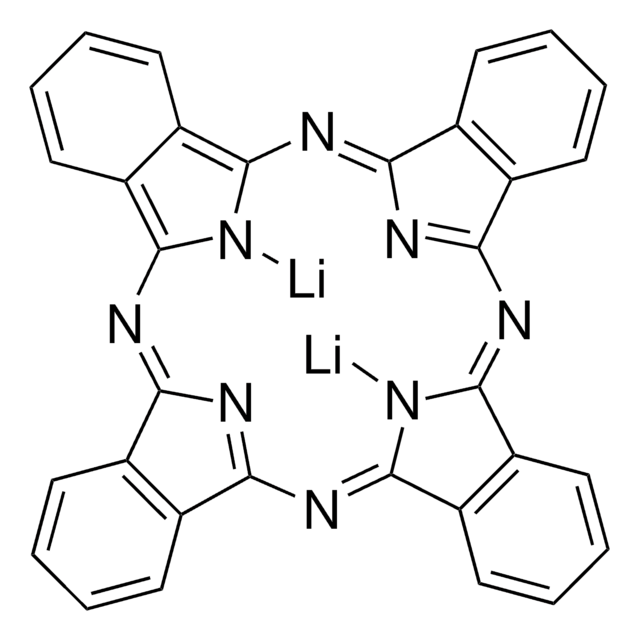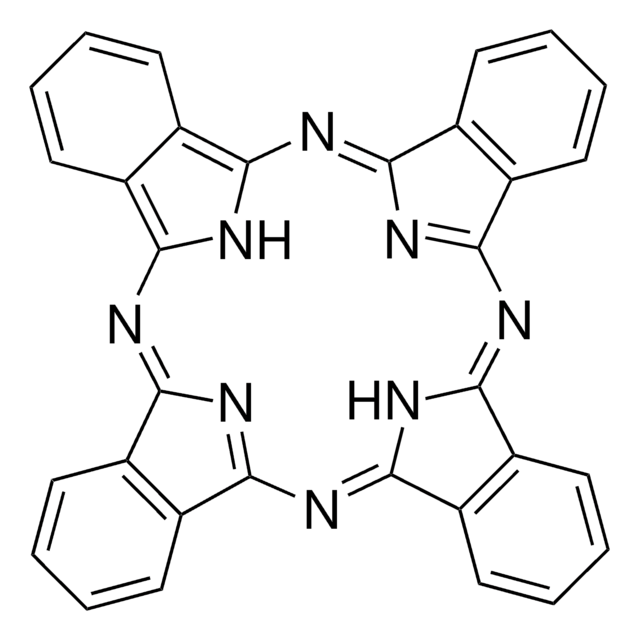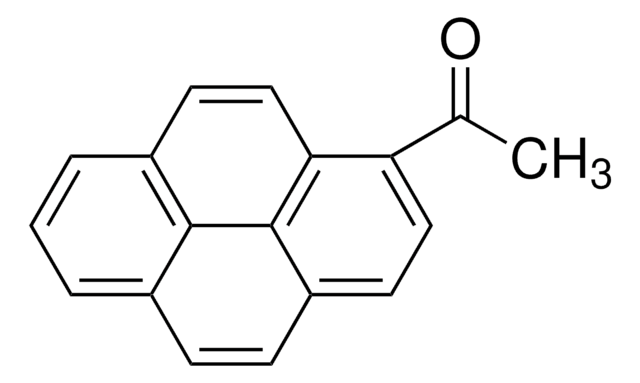399655
1-Pyrenebutanol
99%
Sinónimos:
4-(1-Pyrenyl)butanol, 4-(Pyren-1-yl)butan-1-ol
About This Item
Productos recomendados
assay
99%
mp
80-83 °C (lit.)
SMILES string
OCCCCc1ccc2ccc3cccc4ccc1c2c34
InChI
1S/C20H18O/c21-13-2-1-4-14-7-8-17-10-9-15-5-3-6-16-11-12-18(14)20(17)19(15)16/h3,5-12,21H,1-2,4,13H2
InChI key
MRENSFROWALQNU-UHFFFAOYSA-N
Categorías relacionadas
General description
Application
- As a new fluorescent substrate to investigate the allosteric mechanism of P450eryF.
- Preparation of fluorescent polymer based on D,L-lactic acid units end-capped with 1-pyrenebutanol by ring-opening polymerization.
- Synthesis of 1-pyrenebutanol (PB)-labeled poly(lactic acid) (PLA) nanoparticles (NPs).
signalword
Warning
hcodes
Hazard Classifications
Eye Irrit. 2 - Skin Irrit. 2 - STOT SE 3
target_organs
Respiratory system
Storage Class
11 - Combustible Solids
wgk_germany
WGK 3
flash_point_f
Not applicable
flash_point_c
Not applicable
ppe
dust mask type N95 (US), Eyeshields, Gloves
Certificados de análisis (COA)
Busque Certificados de análisis (COA) introduciendo el número de lote del producto. Los números de lote se encuentran en la etiqueta del producto después de las palabras «Lot» o «Batch»
¿Ya tiene este producto?
Encuentre la documentación para los productos que ha comprado recientemente en la Biblioteca de documentos.
Los clientes también vieron
Nuestro equipo de científicos tiene experiencia en todas las áreas de investigación: Ciencias de la vida, Ciencia de los materiales, Síntesis química, Cromatografía, Analítica y muchas otras.
Póngase en contacto con el Servicio técnico















